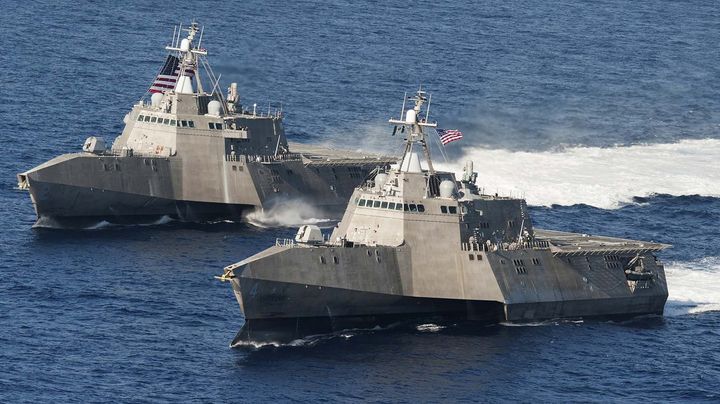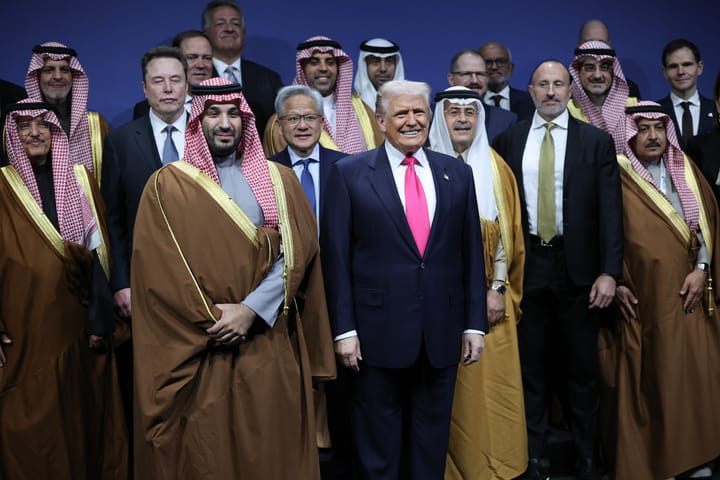Lockheed Martin was awarded a new defense contract on Monday, including $225 million for foreign military sales to Saudi Arabia. The contract is a modification to a previously negotiated agreement with Saudi Arabia to provide four multi-mission surface combatant ships (MMSC) to the Kingdom for $11.25 billion.
The MMSC ships are a variant of the U.S. Navy’s Littoral Combat Ship (LCS), which has been plagued by cost overruns and mechanical failures. The Navy’s LCS classes are designed for combat close to shore and contain helicopter flights decks, replacing the Navy’s slightly larger frigates. The fact that the ship is being offered to Saudi Arabia despite the problems with the program is a boon for Lockheed Martin, at a time when the program is under scrutiny.
Longtime Lockheed Martin lobbyist Marshall Brachman has spent the last several quarters specifically lobbying Congress on the littoral combat ship program and foreign military sales, according to lobbying disclosures reviewed by Sludge.
“This contract indicates that the deal for these combat ships is now moving full speed ahead,” Bill Hartung, director of the Arms & Security Project at the Center for International Policy, tells Sludge. “These are a variation on Lockheed Martin’s troubled Littoral Combat Ship, so it is very good news for the company. It is problematic for the region, however, as the main thing the Saudi regime has used its Navy for in recent times is in its blockade of Yemen as part of its intervention there.”
According to the World Food Programme, 17.8 million of Yemen’s 29.3 million people are food insecure. Within the country, 8.4 million people are fully reliant on external assistance. The Saudi-led coalition partially lifted the blockade in late 2017, but the United Nations has called for fully lifting the blockade, citing the dire humanitarian situation.
“Helping build up the Saudi Navy at this time sends a terrible signal about U.S. intentions in the Persian Gulf,” says Hartung. “And these ships could be used in the future—albeit some years down the road—in ways that will further undermine security in the region. It’s good for Lockheed Martin, but most likely bad for Persian Gulf security.”
The new $225 million contract functions as a modification to the previously-awarded contract for the four MMSC ships and so did not have to go through the same congressional approval process. But those concerned by Saudi Arabia’s record of high civilian casualties in the war in Yemen believe that the Trump administration should use these opportunities to stop the contracts from moving forward.
“As previously negotiated contracts like these work their way through the years-long process to actual delivery, the United States has the opportunity to re-assess and adjust to changing times,” Jeff Abramson, Senior Fellow at the Arms Control Association, tells Sludge. “The administration should use this moment to halt sales rather than issue contracts. It is completely irresponsible to continue weapons sales to Saudi Arabia and the United Arab Emirates as they persist in their attacks in Yemen that have targeted civilians and civilian infrastructure, exacerbating the humanitarian crisis. The Trump administration is failing to use what leverage it has to end the conflict and ameliorate the suffering of Yemenis.”



